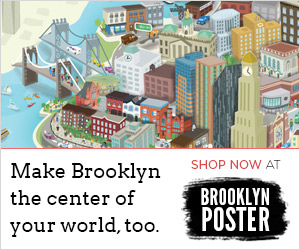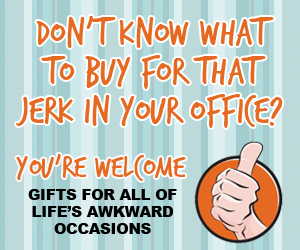 image via blogs.indiewire.com
image via blogs.indiewire.com
Gentrification is always a hot-button issue, not only in this neighborhood, but throughout the borough of Brooklyn. Filmmaker Kelly Anderson explores the repercussions of policy-based gentrification in her documentary film, MY BROOKLYN which is enjoying a week and a half of encore screenings at the reRuntheater in Dumbo.
Anderson, professor of film-making at Hunter College, started noticing how gentrification was affecting Brooklyn when she moved into Park Slope in the 80's. After then moving to Fort Greene and now currently residing in Sunset Park, Anderson became fascinated and concerned about the changes she saw going on around her.
For the film she decided to pick the city's massive rezoning and redeveloping of Downtown Brooklyn, mainly of Fulton Mal,l as the lens through which to view how the process of corporate developing of neighborhoods is unwanted and unfair to the populations that live and work in those areas already.
FIPS has given a shout-out to this movie twice and there's good reason. MY BROOKLYN is meticulously researched, packed with intelligent and heart-felt interviews from residents and experts and really a must-see for any Brooklyn resident. Last weekend I was able to sit down and talk to Anderson not only about the film, but about gentrification in general and how we as Brooklynites can and should be an active part of what's going on in our neighborhoods.
J CHARLES: When you set out to make this film, was your goal to change people's perspectives on gentrification?
KELLY ANDERSON: I felt that the debate around gentrification was active but it wasn't particularly informed by history or real policy questions. I was really motivated by a desire to find a way of thinking about gentrification that allowed me to engage the issue instead of just feeling weird and bad about it. Some gentrification is normal and some of it is good, like if it's a reinvestment in neighborhoods where businesses were needed for a tax base but why is city policy now driving a kind of gentrification that's about turning the city over to tourists and super wealthy residents? Most of what's going on in Brooklyn is part of this crazy real estate bubble and a lot of what's being sold in these new developments are being sold to people who aren't even living there. Their becoming investment properties for someone in Europe or Asia and that's just not good for anybody in those neighborhoods.
JC: What do you think Downtown Brooklyn is going to look like, 15-20 years down the line?
KA: I think we're going to see more of the change that we've already seen. We're going to see a lot more big box retail. We're going to see a greater demographic shift. I think we'll see that Fulton Mall won't be the cultural and social hub that it's been in the past. It used to cater to working class people mostly, African American and Caribbean, and that culture that allowed that space to flourish is not going to be there, and the generational connections that people had in that area will be gone because of the displacement of these small businesses.
JC: Where do you think all these displaced populations are going to go?
KA: According to the last census, for the first time since the Civil War, cities are hemorrhaging their African American populations. Chicago lost 200,000 African Americans, New York lost 150,000, 50,000 just from Brooklyn alone in the last 10 years so that's huge. Where are those people are going? I don't know if anyone's really been able to figure that out because the census doesn't ask you where you came from. Many people are going down south because it's cheaper to live there and they may have family connections there. People are moving to East New York and the Rockaways or even further. Basically people are being pushed from the centers of cities out to the margins. All of this raises the question: what right do we have to do this to the people who built these cities in a physical and cultural sense? What right do we have to reap the benefits of other people's work?
JR: These new buildings that are going up in Downtown Brooklyn, or along Fourth Avenue, or on the waterfront in Williamsburg are just thoughtlessly designed and look ugly. Do you have any thoughts on the aesthetic of what's going on in the new developments in Downtown Brooklyn?
KA: If you look at the Pratt Center's plan (which was discussed in the film) it was more of a community-based plan that retrofitted old buildings or added second floors to older buildings already in the neighborhood. I think what we have now is that these developers are no longer local. You have these global real estate investment trusts like the Avalon in Fort Greene which was built by a huge real estate company. They need to build as cheap as possible because they're trying to serve their share holders and they don't care about Downtown Brooklyn. They're just building cookie-cutter apartments for college students and transient Wall Street workers who are going to come to the city for 3-5 years then leave. There's no incentive to build something unique or different. I mean, don't get me wrong, I wouldn't be opposed to high-rise condo's if that's what the community needed or really wanted.

JC: What can we do as residents to make sure this doesn't happen on such a large scale across Brooklyn?
KA: Well first I think people need to get over this idea that change is good and gentrification is good because of this outdated notion that things will get better and we'll have less crime. Crime is about policing and having strong neighborhoods. People need to educate themselves about the parts of neighborhood change that we have control over and a responsibility to be a part of: land-use decisions, zoning, subsidies, eminent domain, anything that's going to go through a public process we can have an impact on. I don't mean just going to a hearing because alot of these decisions are made before you get to them. But these city council members vote for these these plans because no one is calling up their offices or knocking on their doors saying "why did you vote for the downtown Brooklyn plan?" So we need to make it as difficult for them to go against their constituents as it is for them to go against the mayor and speaker of the City Counsel because right now all the pressure is coming from the speaker and the mayor.
People can also be connected to what's going on by being involved at the community board level and by getting involved with community organizations like the Fifth Avenue Committee or FUREE or the Pratt Center. These organizations really do know what's coming down the pike in city planning.
And lastly, if you move into a neighborhood, just get to the know the people who are there. Just because you didn't create the problem doesn't mean you don't have a responsibility to help keep that neighborhood viable and sustainable for the people who have lived their for a longer time.
JC: What's next for the film?
KA: Well if we keep selling out the screenings, we'll keep doing them. I feel like we've barely scratched the surface. This is the kind of film where the more the word gets out about it, the more people come out to see it. The film reaches out in all different directions to different communities and reaches out to different people in different ways so I feel there's a lot of potential, I've done a lot of community screenings in Park Slope and around the city and I'll keep doing them, but for now I'm going to stick to the theatrical venues because they are selling out every show and that's pretty amazing.
MY BROOKLYN is screening at the
reRun theater until Sunday, February 3. It's well worth the trip.
 J. Charles |
J. Charles |  Thursday, January 31, 2013 at 7:01AM
Thursday, January 31, 2013 at 7:01AM 








